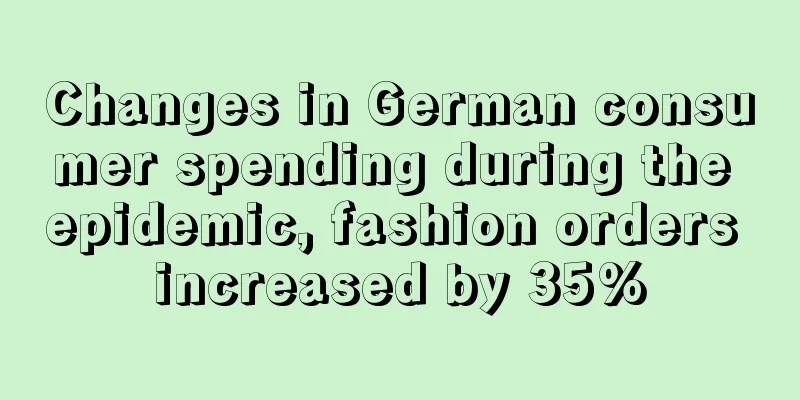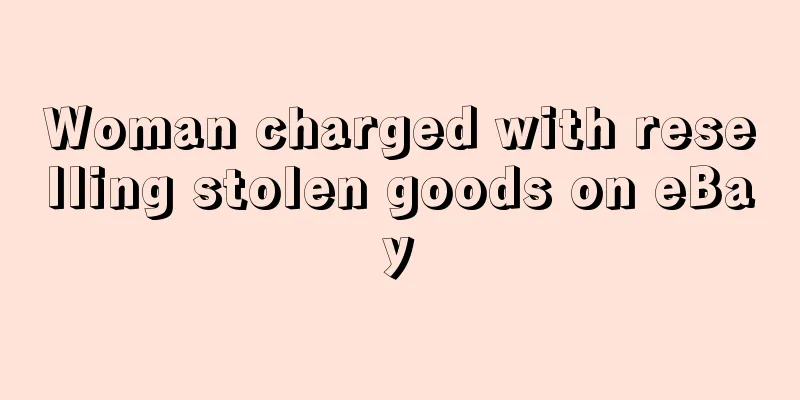Changes in German consumer spending during the epidemic, fashion orders increased by 35%

|
Since the outbreak of the epidemic, the German e-commerce market has flourished. In order to understand the changes in consumer shopping psychology in the later period of the epidemic, the transaction portal MyDealz recently conducted a questionnaire survey on 2,001 German consumers. The results showed that as long as it did not involve groceries or other daily necessities , most Germans chose to shop online during the epidemic, but 81% of them still longed for the previous offline shopping experience.
According to the survey results , 37% of Germans believe that consumer spending is not much different from before the outbreak of the new crown . Among consumers aged 35-44 , 47 % also believe that the level of consumer spending is basically the same as before . Young consumers under the age of 18 and older consumers over the age of 65 said that they have slightly reduced their spending and become more frugal. In addition, 25% of young people and 33% of middle-aged consumers said that their spending has been significantly reduced.
In addition, the proportion of expenditure categories has also changed greatly . People's expenditure on necessities such as electricity, food and heating has increased by 43 % , 36% and 35% respectively . Moreover, 18% of the respondents said that the proportion of expenditure on furniture and home decorations has also increased.
MyDealz survey found that the epidemic has stimulated people to participate in online shopping, which is particularly evident in fashion products , electronics and household products , with order increases of 35%, 31% and 29% respectively. 44% of respondents said that even after the epidemic is over, they will still maintain this shopping habit because online shopping in these categories is cheaper and home delivery reduces a lot of unnecessary trouble.
Although the lockdown measures during the epidemic restricted people's activities, the impact on travel was not as great as expected. More than 33% of Germans spent the same amount on cars, buses and trains as before .
But overall, people's spending on non-essential items is still on a downward trend. 79% of respondents have reduced their travel spending, 28% have reduced their spending on fashion and accessories , and 20% have reduced their spending on perfume and cosmetics .
Although online shopping has many advantages, it also has certain limitations . A recent study by Offerista Group showed that 81 % of German consumers miss the feeling of shopping in physical stores .
Based on this, MyDealz investigated the reasons. More than 50% of the respondents believed that online shopping has a long waiting time , shipping costs and often inconveniences in picking up goods. 57% of Germans believe that offline shopping can be done with friends and partners, 33% of people pay attention to direct feedback from offline shopping, and 43 % of the respondents believe that online shopping cannot intuitively feel whether the product is easy to use. Germany Consumer Psychology Consumption changes |
Recommend
What is Repricing Central? Repricing Central Review, Features
Repricing Central is an automated Amazon repricer ...
A year-on-year increase of 78%! Russia's online parcel volume reached 1.5 billion in 2021
Recently, Data Insight released the final report ...
Wish may become the largest defendant in the rights protection of a popular Chinese product with sales of more than 50,000
If we talk about what modern adults fear the most...
Amazon may recall products on sale! Involving multiple brands and more than ten ASINs
Recently, the U.S. Consumer Product Safety Commis...
Only 4 years after its establishment, it received 100 million yuan in financing! Shenzhen sellers selected the hot products and they became popular
In addition to the new energy vehicles that are w...
4.1 billion products sold in one year! Third-party sellers account for more than 60% of sales in Amazon.
As the demand for expansion of various platforms ...
What is Bieyang Overseas Shopping (Bieyang APP)? Bieyang Overseas Shopping (Bieyang APP) Review, Features
Bieyang APP Overseas Shopping is a very convenient...
What is Mobile.de? Mobile.de Review, Features
Mobile.de is a German e-commerce platform that sel...
Operational development is slowing down? Many big sellers are spending heavily to retain employees
Since the beginning of this year, the industry ha...
Amazon products were "copied" to Temu, with more than 1,000 orders a day
Amazon sellers’ products were copied to Temu, and...
Online shopping boom in Cambodia, Smile Shop's online business grows strongly
Cambodia’s leading B2C e-commerce Smile Shop is r...
AliExpress's Korean orders surged, and it signed contracts with several leading local logistics companies such as CJ and Hanjin
According to Korean media reports, as AliExpress ...
What is Capcut? Capcut Review, Features
capcut is a mobile application software that was ...
What is 3dcart? 3dcart Review, Features
Founded in 1997, 3dcart is a complete and powerfu...
Too sudden! New product shipments surged to 1,500, and Bezos resigned
Last night, just as sellers finished shipping the...









